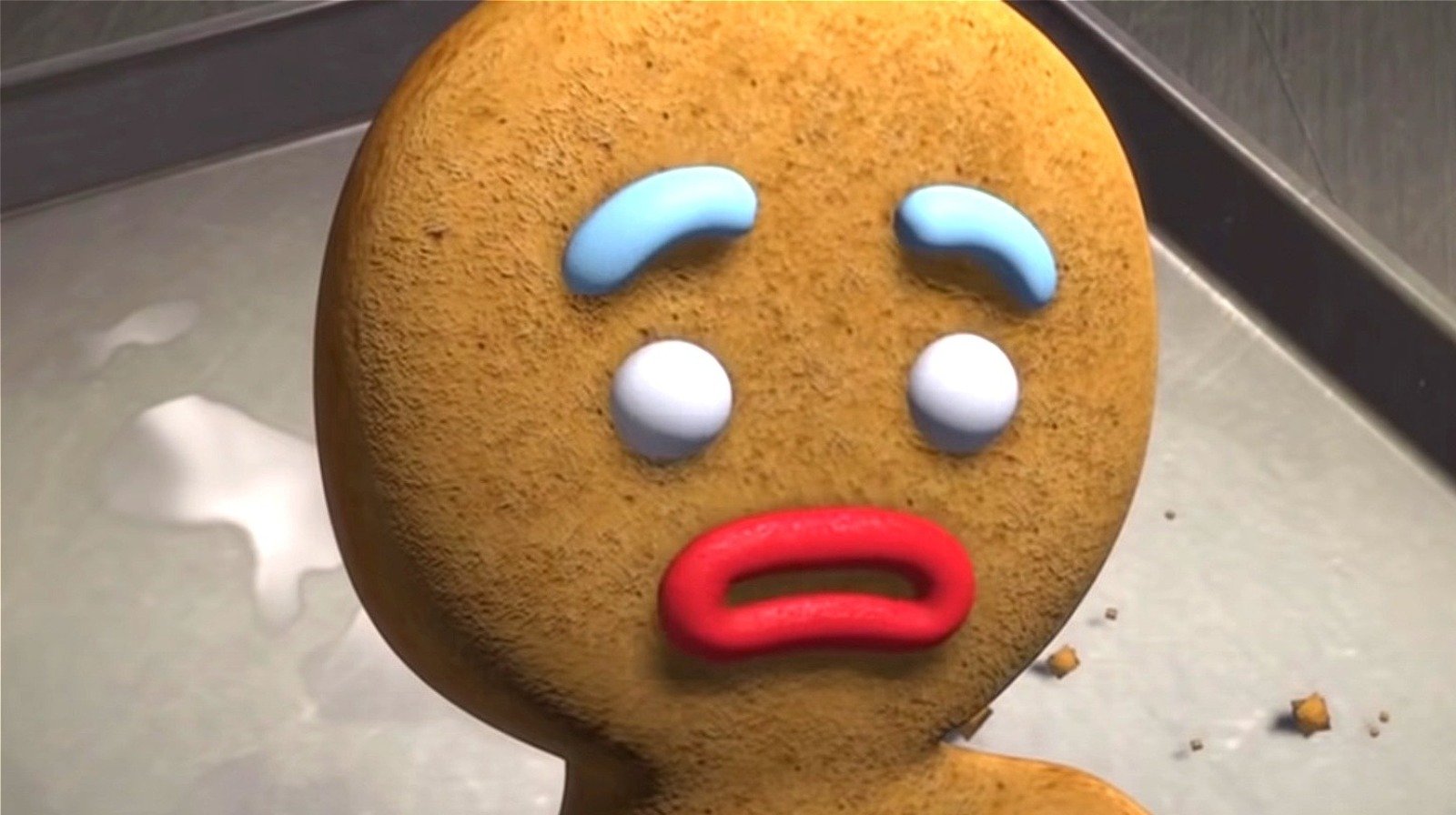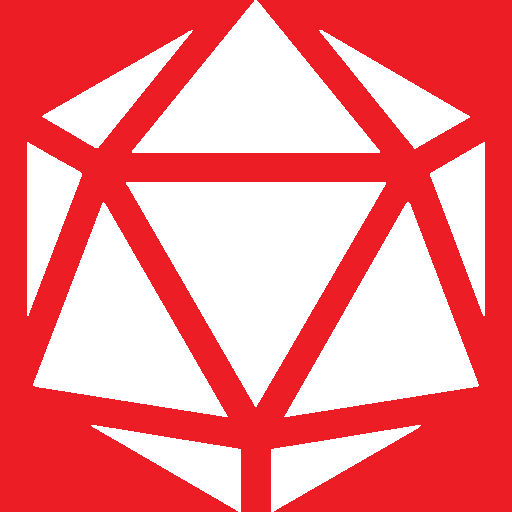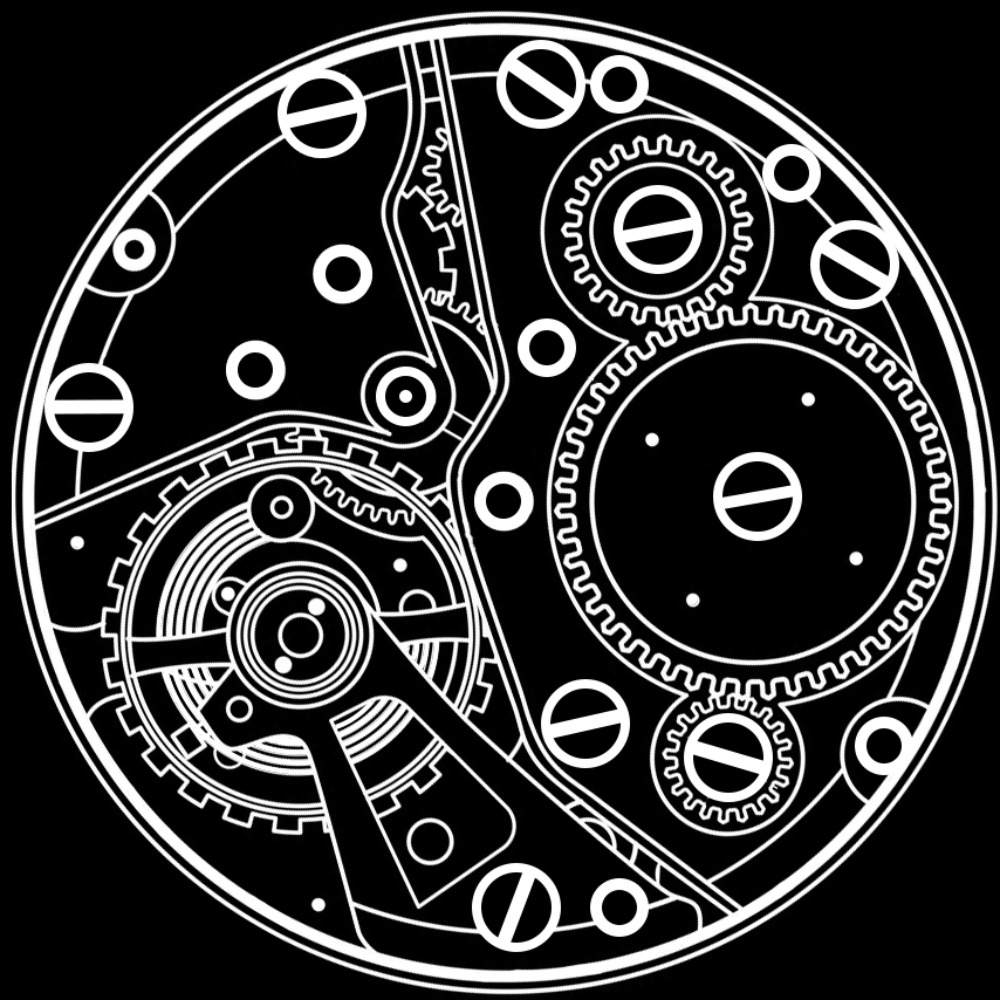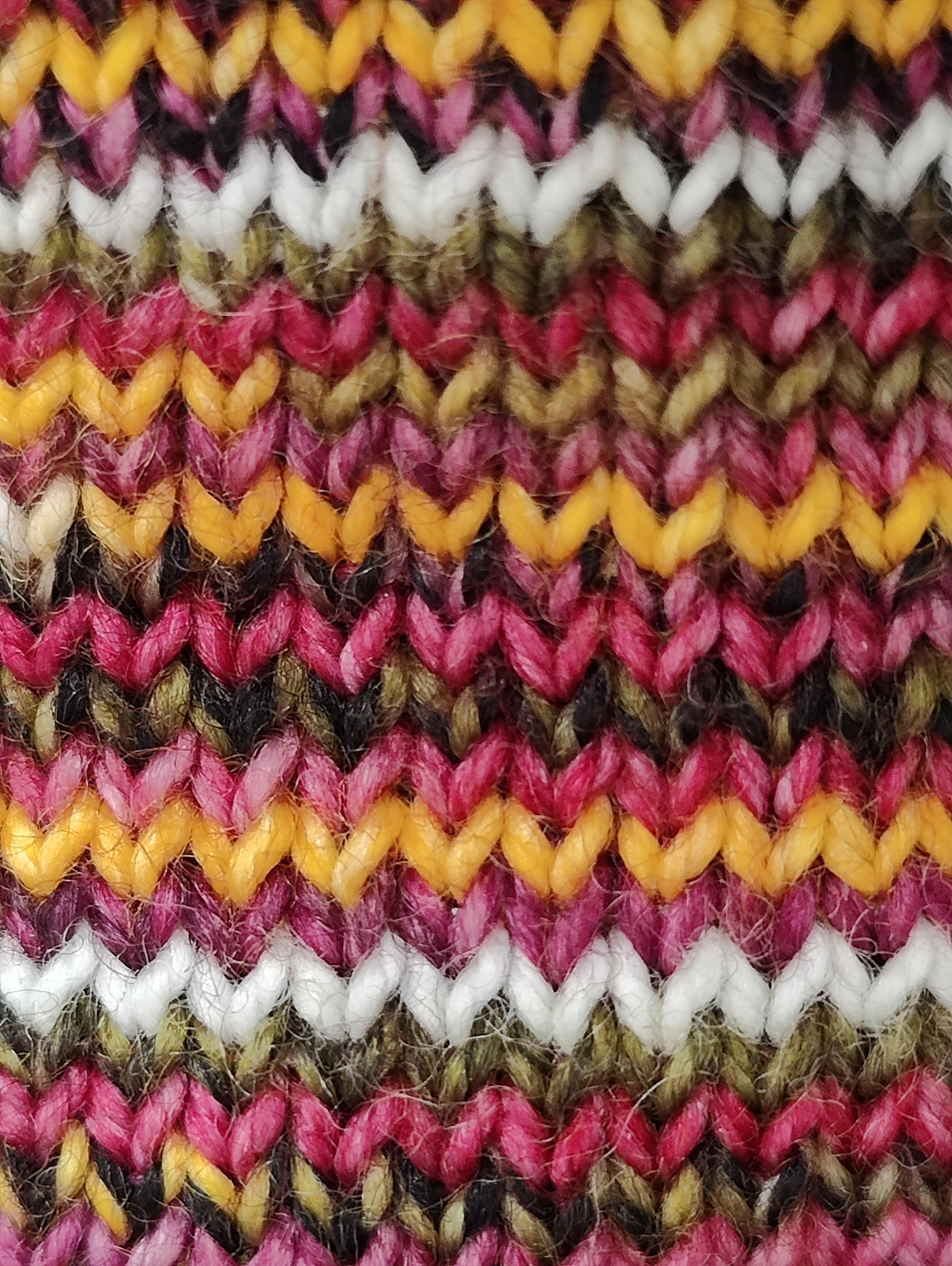Apparently this reminder is needed.
It is a meme.
English is not the only language with homonyms.
In French if something isn’t functioning properly you say that “il ne marche pas.” Now, in my studies, “marche” means “walk.” So to me that says “it doesn’t walk.” I asked a native speaker about that and they told me, no, that is not what that means.
It’s like saying your fridge is not running.
Then you… better go… catch it… em… oh… Hangs Up
Noses run, feet smell. Everybody knows that.
Wait till you find out about du coup -
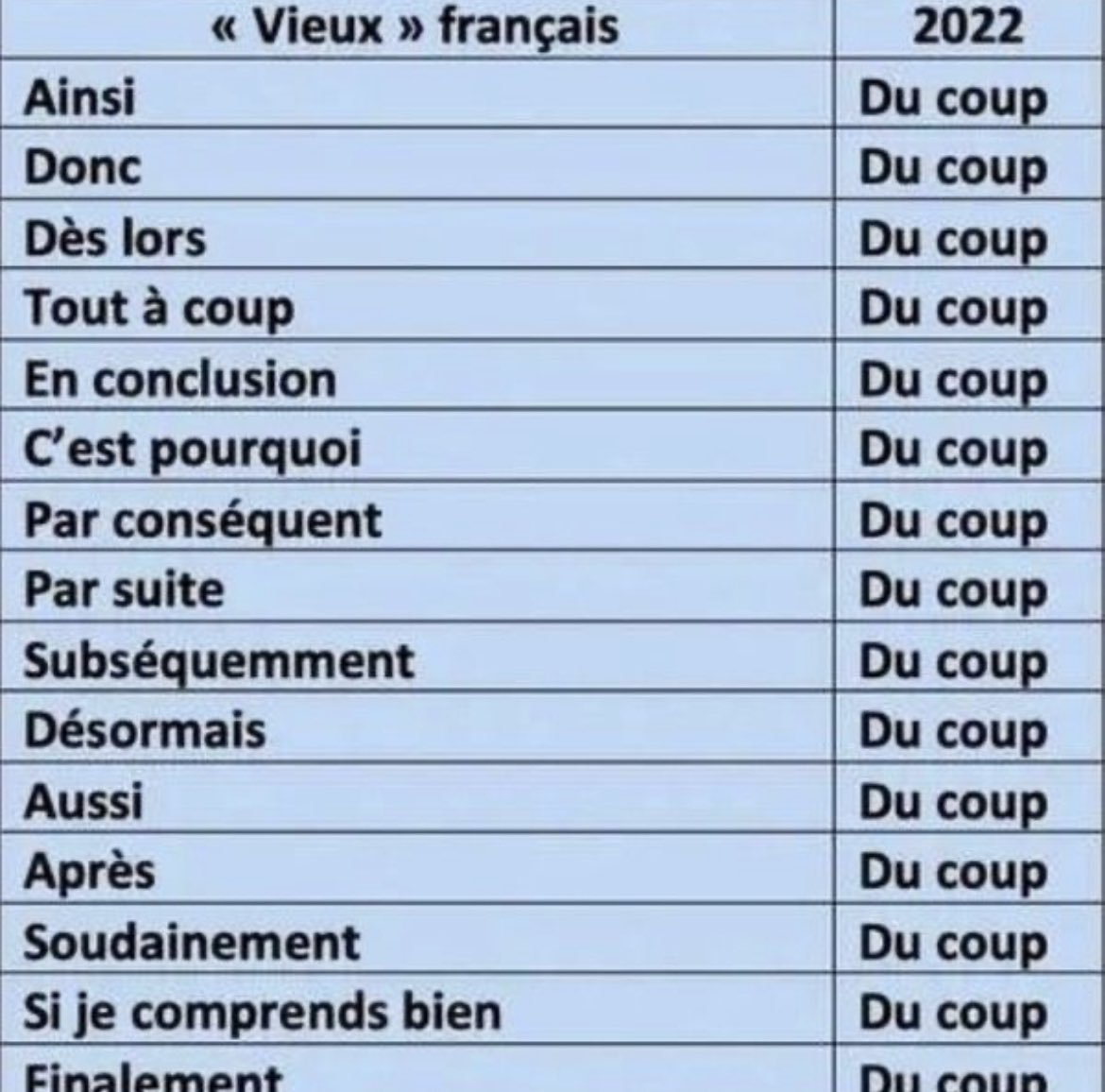
Why would you attack me like that!
I’ve been trained in your Jedi arts by Count Du coup.
Je vais arrêter maintenant.
Same in German. “Es geht nicht.”
I’m English Canadian with a lot of French Canadian family and friends … I don’t speak French but I’ve been around it all my life … here’s one for you …
Le ver vert va vers le verre vert
And back to English: Aaron earned an iron urn
Easy!
The green worm goes towards the green glass 😌👌
Same in Romanian. “Nu merge”.
You’re a homonym.
English should just adopt hanzi. All problems solved.
deleted by creator
Soldier, plug, varnish, wax seal, some dude, seal?
Navy seal , rubber seal, wood seal wax seal, Seal Henry Olusegun Olumide Adeola Samuel, animal seal
Ah yes, the navy seal in the middle of the desert.
And still people think global warming isn’t a problem.
Among the SEALs’ main functions are conducting small-unit special operation missions in maritime, jungle, urban, arctic, mountainous, and desert environments
some dude.
My…my lawn…
Is this a “get off my lawn” joke? Sorry, just confused. :P
If it is, don’t worry, I’m sure my age has little to do with my ignorance. It’s probably more that I just don’t follow celebrities.
I think that’s famed character actor Morris Chesnut.
Henry Olusegun Olumide Adeola Samuel
Soldier Dunno Brush Stamp Seal Seal
Ohh… Seal seal seal seal seal seal
Military, air filter, paint brush, wax seal, Mike Tyson, sea-lion!
That’s Seal, a Bri’ish musician/singer.
Oh yikes, I’ll have to check him out now, thanks!
Bay-bayehhh
comments you can hear
All the pictures are of things called “seal”… That’s the joke dude
whoooooooooosh
What’s the common word for the first row?
They’re all “seals”
deleted by creator
The top row was a little harder for me as I saw soldier, rubber something, and paint brush. The bottom I saw all seals.
The top is Navy Seal, rubber something seal, and sealing wood with a paint brush.
Thank you I also got the bottom robot had no idea about the top.
Three of those are the same thing and the other three are named after each other
Navy seal isn’t named after seal the animal. It’s an “acronym” for sea air and land.
And the fact that it’s a marine mammal is a coincidence? No it’s a backronym much like every other law’s name
SAAL?
I don’t get how English is hard. I learned it when I was just a kid.
deleted by creator
I think the above commenter was aware of that.
I hope you are joking because that’s not at all how it works. There is a certain age when you are capable of learning a language easily. This time window closes naturally. It has nothing to do with the problematic school system
Google for a poem called “The Chaos”. It starts with “Dearest creature in creation”. Read it out loud without errors.
Here it is. I was going to paste the whole text in here until I realized what a monster of a poem it is.
As a native speaker, dang, that’s not easy!
A few words I’m not sure on.
As a non-native speaker, it took me a quite few trials to get things right. And it contained a shitload of surprizes.
There is a reason this poem is called “The Chaos”.
And, have you read it aloud? ;-)
But it is good that you provided the link instead of the text, as the link contains a load of additional information about the poem and its author.
This poem could be the final test of an English course.
That’s not easy, Mr. Fox, sir
When tweetle beetles fight, it’s called a tweetle beetle battle.
And when they battle in a puddle, it’s a tweetle beetle puddle battle.
AND, when tweetle beetles battle with paddles in a puddle, they call it a tweetle beetle puddle paddle battle.
AND, when beetles battle beetles in a puddle paddle battle and the beetle battle puddle is a puddle in a bottle they call it a tweetle beetle bottle puddle paddle battle muddle.
I can’t read easy English out loud correctly.
Why use lot word when few word do trick?
This post double plus good.
Actually, that’s an argument for a more expanded vocabulary. You can use single words to consolidate.
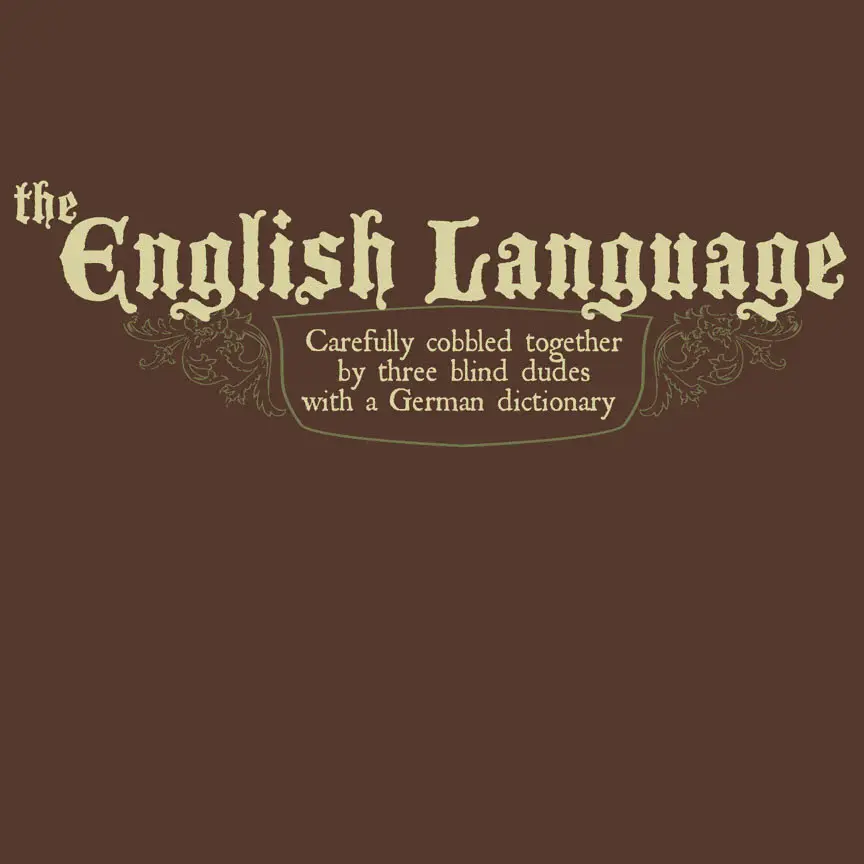
And one of those blind dudes was French, no less
Fun fact, the word ‘set’ has 430 definitions.
That’s quite a set of definitions
If the set of definitions contains the word set, does the English language implode in a recursive cascade of paradoxes?
A set can totally contain itself. A better question would be: Consider a set, that contains all sets, that do not contain themself. Would that set contain itself?
It would. Source: I just shaved my beard
Yes, just relax the axiom of comprehension, allow U ∈ U and move on with proving things for fun and profit. No one said that you have to pick axioms that seem natural or intuitive.
Define “the” without using the word “the”… Take that logic! Set and match!
A common English definite article
Come on, you can’t count Seal the musician… That’s not a common name in English speaking countries. I’ve never heard of anyone else named Seal
English is easy. The hardest part about it, which some other languages also feature, is a poor correspondence between the written and spoken language.
That feels intuitively correct to me, but I’m not sure if I’d say any language is particularly “easy”. Language is complex, complicated and only makes sense in the context of understanding human communication. Although language is also more intuitive than we give it credit for.
I think spoken Japanese is possibly “easier” than spoken English, but written Japanese (outside of digital media) is essentially impossible for me because I don’t have Kanji memorized.
I mean yes it’s a bit under-nuanced to describe any language as “easy” or “hard”. The single biggest influence is whether you’re already familiar with a similar language. English is going to be much easier if you already know German; Japanese will be much easier if you already know Okinawan. And as you say, written and spoke language can be quite different.
That said, I don’t think it is the case that all of the different factors trade off against one another perfectly. I would expect them to trade off against one another to an extent though, because I would imagine there are forces which cause overly complex languages to become simpler, and more simple languages to become more complex. (One aspect of complexity comes through redundancy, such as requiring agreement between inflections of words when the inflection only conveys information already imparted from the rest of the sentence. But extra redundancy can aid in understanding because the listener generally doesn’t hear everything perfectly)
But yeah, some languages just have incredibly complicated and picky grammar, whilst others have relatively simple grammar. As an English speaker, Japanese grammar has lots of unfamiliar features but could still be simpler than Finnish, which also has lots of unfamiliar grammar but which is very complex.
I feel like English is fairly easy to get into and have a correct conversation level. But that it’s insanely hard to master.
I have no reference for the relative difficulty of languages to master, except that I know that all languages are incredibly hard to master to the level of a native speaker.
English is only “hard” because it is shit. There ain’t no rules for nothing. All the “rules” have exceptions, which have exceptions, which have have exceptions.
Too wide spread, too many accents
Invented by an island of rock throwing mongrels.
Damn. I keep being surprised by how many people take stuff online way too seriously. Good meme, you get my seal of approval

Needs to have a facemorph of Seal (the singer).
deleted by creator
Through, though, hiccough, slough, bough, and cough don’t rhyme

Who says hiccough
it’s pronounced “hiccup” but some people don’t respect the spelling and write it phonetically.
I’ve never seen it written that way, love to read, was an EMT, went to college, etc… Just saying I missed that somewhere and often saw hiccup, even in EMT educational textbooks.
UK here; hiccough is definitely what I’ve seen and been taught, perhaps it’s a geographical thing?
A mystery unraveling
They are both valid spellings
This I return to my original: who says hiccough? I’m relatively well read and have some exposure to biology and medical professional context, and never saw it that way
what do you mean by “says”? everyone in English says “hik-up”
some people spell it hiccough and others hiccup.
I was just saying why you wouldn’t have seen it
I like boobies too and am bored of this
I’d argue that even cough and rough are different. There’s probably more.
Nobody says hiccough.
Literally everyone says that word. They just pronounce it hiccup.
No, we all say hiccup. FFS, googling “hiccough” essentially autocorrects to hiccup. If everyone spells it hiccup and also pronounces it hiccup, literally no one is using “hiccough”.
Sure sure. And you can spell through as thru as well. That doesn’t change the original spelling, or the fact that they’re pronounced the same.
And you can spell through as thru as well.
No you can’t. Not in the same way. “Thru” is an informal word, similar to writing “gud 2 c u”.
How about you at least try something that’s not blatantly inequivalent. If I Google “thru”, what can I expect to find? If I run both through a dictionary, what can I expect to find? If I poll the general public on each, which one would be accepted as a proper spelling? What would I have to do to both “thru” and “hiccup” be treated as equals here?
That doesn’t change the original spelling, or the fact that they’re pronounced the same
I said nothing about an original spelling. But if you’re calling it the original spelling, you’re kinda just conceding that “Hiccough” is the original and “hiccup” is the current.
Thru is informal, today. Hiccup was informal years ago. Language progresses.
no one uses hiccough. it’s outdated and dead. Just as in the future no one will use “surewhynotlem” and will instead use the proper and more agreed upon spelling “donebrach”
Navy SEAL is an acronym. Doesn’t count.
So? “Laser” and “radar” are acronyms, but we use them as words
But an acronym that was intentionally made to be the name of the animal, so it’s just a duplicate, like all three of the non-singer seals, which just mean to lock something in or out. There are only 2 meanings of seal here, plus a singer who named himself after one of them.









